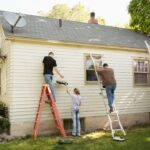According to a new study from Redfin, nearly two in five (38%) U.S. renters believe they will never own a home. up from 27% reported less than a year ago.
The top reason cited by those polled was lack of affordability by renters as they believe they are unlikely to become homeowners. Nearly half (44%) of renters who don’t believe they’ll buy a home in the near future said it’s because available homes are too expensive, followed by the next most common obstacles:
- Ability to save for a down payment (35%)
- Ability to afford mortgage payments (33%)
- High mortgage rates (32%)
- Routine maintenance and upkeep (19%)
- Lack of financial report from family (17%)
- Lack of home sales (15%)
- Not interested in owning a home (14%)
- Recent loss of employment (13%)
- Not interested in upkeep of a home (12%)
- Need to pay off student loans first (10%)
For the survey conducted by Qualtrics in February 2024, Redfin polled approximately 3,000 U.S. residents, including about 1,000 renters.

Grasping affordability
Of those polled, Redfin reported that buying a home has become increasingly out of reach for many Americans due to the one-two punch of high home prices and high mortgage rates. First-time homebuyers must earn roughly $76,000 to afford the typical U.S. starter home, up 8% from a year ago and up nearly 100% from before the pandemic.
Over the last year alone, U.S. home prices have risen 7%. The average national mortgage payment rose $50 month-over-month in February, according to the latest Mortgage Bankers Association (MBA) Purchase Applications Payment Index (PAPI).
The struggle continues across the board
Nearly one-quarter (24%) of renters polled by Redfin said they regularly struggle to afford their housing payments, and an additional 45% say they sometimes struggle to do so.
According to LendingTree, some homeowners and renters live in poverty, as data from the latest U.S. Census Bureau American Community Survey data reveals that more than three million families who live in single-family owner-occupied homes in the country earn an income below the poverty threshold for their family size.
The high cost of rent
Rents have soared over the last few years because so many people moved during the pandemic, upping demand for rentals. The median U.S. asking rent is roughly $2,000, near the record high hit in 2022—but the good news for renters is that prices aren’t growing nearly as fast as they were during the pandemic, partly because an influx of apartment supply is taking some of the heat off prices.
“Housing costs are high across the board, but renting is a more affordable and realistic option for many Americans right now—especially those who have never owned a home and aren’t able to tap into equity from a previous sale,” said Redfin Chief Economist Daryl Fairweather. “While owning a home is usually a sound long-term investment, the barriers to entry and upfront costs of buying are higher than renting. Buying typically requires a sizable down payment and approval for a mortgage—things that are difficult for many people today, when the typical down payment is near $60,000 and mortgage payments are sky-high. The sheer expense of purchasing a home is causing the American Dream of homeownership to lose some of its shine.”
Gen Z renters remain confident
When broken down by generation, Generation Z renters were the most likely to believe they will become homeowners. Just 8% of Gen Z renters believe they’ll never own a home, compared to 22% of millennials, 40% of Gen Xers, and 81% of baby boomers. Adult Gen Zer’s (aged 18-27) are in the early stages of their careers and have time to eventually become homeowners. Older generations, especially baby boomers, may have already owned a home and decided to rent for the convenience and low-maintenance lifestyle, or are on a fixed income.
According to the National Association of Realtors (NAR), millennials (now 25-43-years-old) have recently surpassed baby boomers becoming the largest group of home buyers in the country. Currently buying 38% of homes, millennials have surged ahead in the last year in their home buying endeavors, where last year they were buying 28% of homes. Boomers (now 59-77 years of age) decreased their home buying habits from purchasing 39% of homes to 31% of homes currently.
“The generational tug-of-war between millennials and baby boomers continued this year, with millennials rebounding to capture the largest share of home buyers,” said Dr. Jessica Lautz, NAR Deputy Chief Economist and VP of Research. “This notable rise is attributed to both younger millennials stepping into homeownership for the first time and older millennials transitioning to larger homes that suit their evolving needs.”







